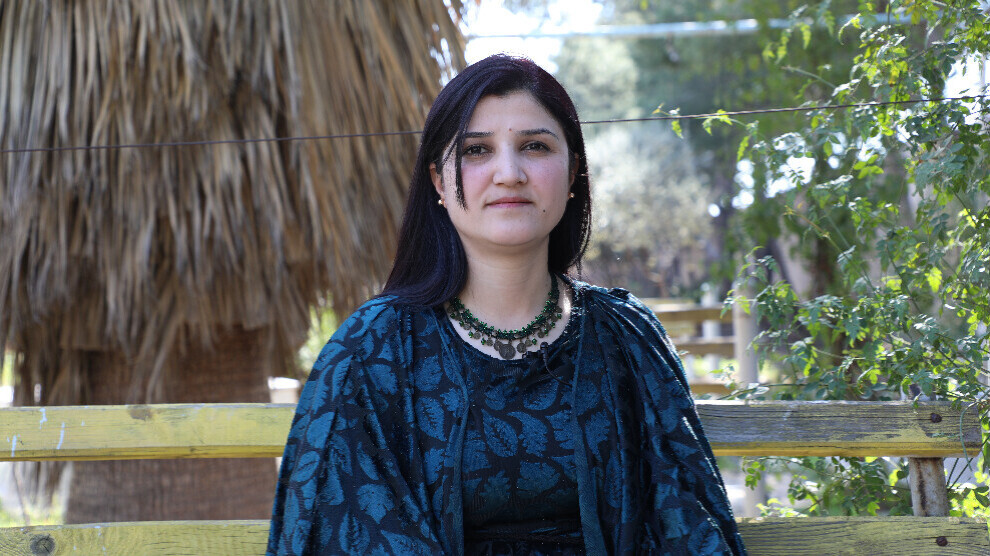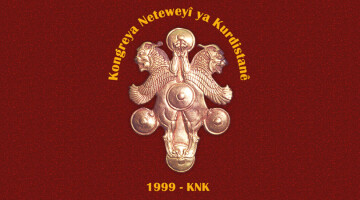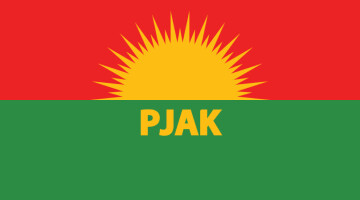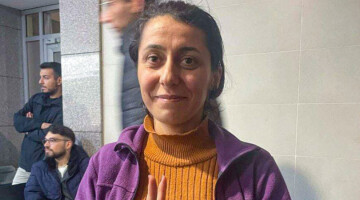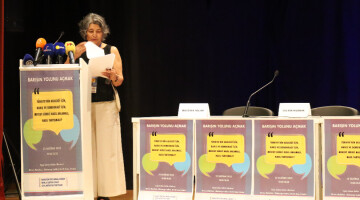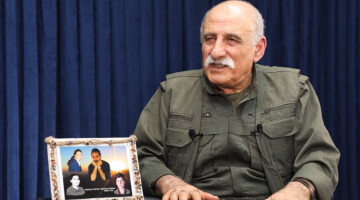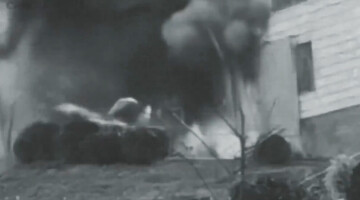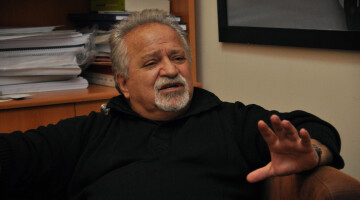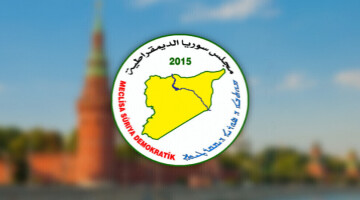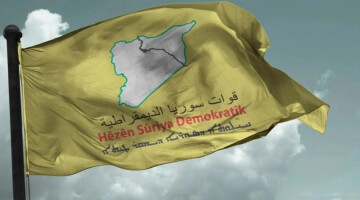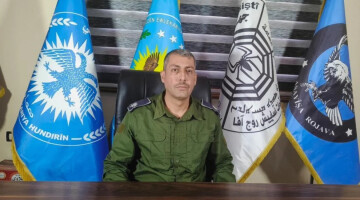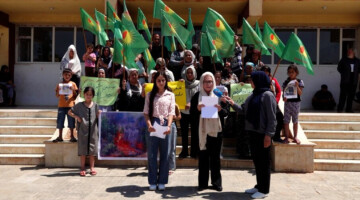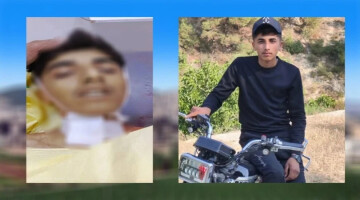The umbrella organization of the women's movement in the autonomous region of Northern and Eastern Syria, Kongra Star, fights against inequality and patriarchy in all areas of life. Rûken Ehmed is a member of the Committee for External Contacts and Diplomacy and described her work in this ANF interview.
How does the Diplomacy Committee organize its work?
Kongra Star has a long history as a women's movement and with the revolution it began to organize its own committees. One of these is the Diplomacy Committee, which was founded in 2013. In the early days, there were diplomatic committees in every city, every region and every canton. In the last two to three years there have been some changes in the way we work and organize. One of the main tasks of the Kongra Star spokeswoman is personal contact with social institutions and organizations. For this reason, our work was mainly carried out centrally. All committees have their own work areas. Our aim is to convey the Rojava revolution to the outside world and inform people about the resistance. As Kongra Star, we have built connections with other women's organizations, both here and in the rest of Syria, the Middle East and around the world. There are representatives of Kongra Star in Lebanon, Europe and Southern Kurdistan. We actually wanted to set up representation in some Arab states, but there were many bureaucratic obstacles. We travel back and forth all the time.
What bureaucratic obstacles?
In general, it is difficult for Syrian nationals to open an office or representative office in another country. We often have problems traveling abroad. We are invited to many conferences abroad, but we have difficulty getting there. This problem is due to the fact that we are Syrian nationals and Syria is under an embargo in many respects. The online alternative was established during the Covid period. We now conduct many of our activities this way. Even if we can't do it from here, our representatives in Europe, Lebanon and South Kurdistan sometimes travel to different countries.
The Rojava Revolution is known throughout the world as the Women's Revolution. To what extent have you succeeded in communicating the revolution and the women who led it to the outside world?
It would be a historical mistake to say that the work of women's diplomacy only began with the Rojava Revolution. Sakine Cansız and many other pioneers have done valuable work in the struggle of Kurdish women. There is a history of recognition that has come from the work of these friends. In this sense, we cannot say that everything started with us, but the revolution in Rojava and the struggle of women like Arîn Mîrkan have opened many diplomatic doors for us. Perhaps initially the military dimension was in the foreground. The military struggle became known worldwide, but then the delegations and people who came from outside and saw the developments were very effective. They could testify that women were active in all areas of society. In many revolutions around the world, women's participation has been limited to one dimension or area. In the Rojava Revolution, the active participation of women in all areas of life caused a great response throughout the world. This made many internationalists join this revolution and some fell as martyrs for it. They have made films about Rojava and published documentaries and books. What appeals most is the system of co-representation, the fifty percent quota for women, the autonomous women's organization, Jineolojî and the active role of women in many areas of life. If there is no struggle and no practical work, no diplomatic work can be done. Our diplomatic work is based on our struggle and our hard-won achievements. Compared to the resistance that is being put up here every day, our diplomatic work is inadequate. Of course, it is important that Kongra Star has been operating and leading the revolution for a long time and that 54 women's organizations have been founded so far. Nevertheless, the diplomatic work could be better; we have not yet reached the desired level. If each institution and organization carried out diplomatic work in its own dimension, the work could be broader and more effective. We have many areas of work, such as health, ecology and economics. The committees responsible for this could do more comprehensive and larger work. Since the individual committees or organizations have not yet established their own diplomatic contacts and a corresponding work system, the main burden of this work falls on us.
What kind of relationships do you have with feminist movements and women's organizations in other parts of the world?
We are a member of many different initiatives both in the Middle East and worldwide. We take part in conferences abroad through our representatives. Our representative in South Kurdistan works at the national level; in Lebanon we work with both Lebanese and Palestinian circles. There are some organizations that visited us at the beginning of the revolution and who continue to maintain friendly relations with us. Some of them keep coming back. When we declare our own revolution, the outside world was sceptical, but when a woman comes and experiences it herself, she understands the reality better. Those who come and see Rojava start working when they return. After the Serêkaniyê War, “Women Defend Rojava” committees were founded in twelve countries; Rojava is supported by 25 women's committees in all areas. Within these committees there are different identities. Sometimes we work together and they ask our opinion and get suggestions from us. We not only take part in conferences, but also carry out joint activities. On certain days, like 8 March or 25 November, we work together. Maybe there are some special days in the world, but here in Rojava we have many dates that we consider special. We ask everyone to take part in such days and activities.
How do women in the world see you? Do they welcome the women's revolution in Rojava?
There are some feminist movements that have existed for centuries. These movements have carried out a wide range of activities for women, but their activities have remained partial or limited only to the Western axis and have not been able to cover all women. Liberalism also had a major influence on these women's movements. The effects of both liberalism and capitalism have resulted in the absence of strong women's movements. Of course, strong female personalities emerged and there were important actions and activities, but no organized women's movement developed. That is the situation in the West. In the countries of the Middle East and Africa, the social influence of religious fanaticism, racism and sexism has exacerbated women's problems. Neither system offers a solution. When women in search of freedom become aware of our revolution, they are faced with the fact that women exist with their own perspective, their own being, and their own organization. That is why there is the participation of internationalists. They see themselves in this revolution and find answers to their questions. Delegations from supposedly particularly democratic countries declare that the quota of women in their country is no more than 15 percent. What impresses them most is the fact that we are represented equally in all areas of life. In Switzerland, for example, our co-chairing system is offered as a course at the university. There aren't many examples of this in the world. There were similar attempts in Germany, but they were not further developed. We live by this model.
What has changed in your work in 2023 compared to previous years?
Our second diplomatic conference took place in 2022, and at that conference we drew up a two-year program. This year will be the third conference. In the last two years we have done a lot of information work to document the attacks and occupation attempts by the Turkish state. We forwarded the documentation in seven languages to various countries and legal institutions and were in contact with many organizations. Our goal was to make the Turkish state's attacks and massacres public, to put them on the agenda and to create pressure. Our further work was mainly focused on the Middle East. We took part in the World Women's March and worked on the initiative of women from the Middle East and North Africa against massacres and occupation. This initiative is primarily active in Syria, Sudan, Yemen, Kurdistan and many other places. There were also visits around the world, including Morocco, Egypt and Lebanon. In some countries in the Middle East and Africa, the Rojava Revolution is not properly known. Because there were obstacles, women could not come to us and get to know the revolution better. That's why we visited her. We have to start in our own environment. We cannot spread our revolution worldwide without doing so in the Middle East and Africa. The "Jin Jiyan Azadî" philosophy has spread with our revolution and has had great influence, especially in Rojhilat and Iran. Our basic perspective is aimed at fighting for political change in Syria and the countries of the Middle East first. The Middle East is particularly affected by policies of assimilation, division, massacres, racism and fundamentalism. This is what our work focuses on.

